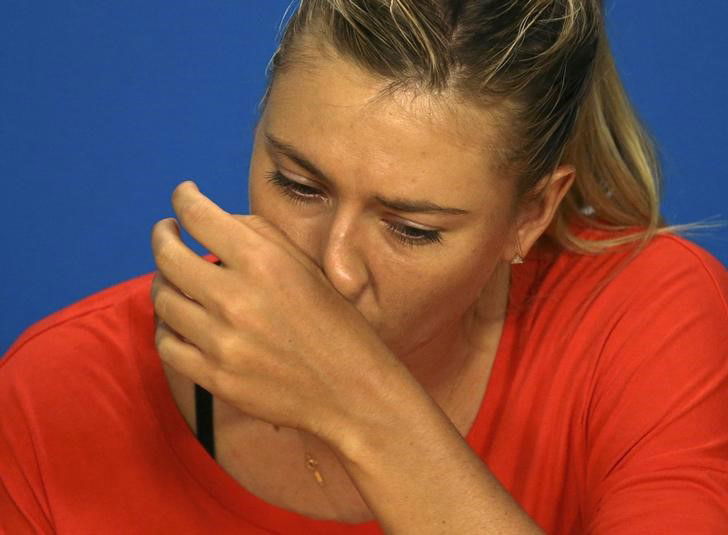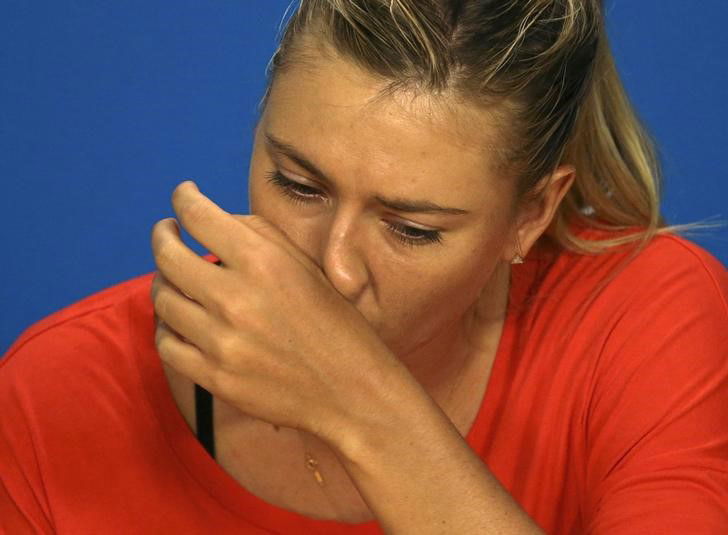
Reuters
Russia’s Maria Sharapova reacts during a news conference after losing her quarter-final match against Serena Williams of the U.S. at the Australian Open tennis tournament at Melbourne Park, Australia, January 26, 2016. REUTERS/John French

Reuters
Russia’s Maria Sharapova reacts during a news conference after losing her quarter-final match against Serena Williams of the U.S. at the Australian Open tennis tournament at Melbourne Park, Australia, January 26, 2016. REUTERS/John French

Reuters
Russia’s Maria Sharapova reacts during a news conference after losing her quarter-final match against Serena Williams of the U.S. at the Australian Open tennis tournament at Melbourne Park, Australia, January 26, 2016. REUTERS/John French

Reuters
Russia’s Maria Sharapova reacts during a news conference after losing her quarter-final match against Serena Williams of the U.S. at the Australian Open tennis tournament at Melbourne Park, Australia, January 26, 2016. REUTERS/John French
Maria Sharapova, who has provisionally remained suspended from playing after failing a drug test, may be in for a serious trouble.
Watch What’s Trending Now!
Sharapova was tested positive for meldonium, at the Australian Open in January this year. The drug was outlawed by WADA with effect from January 1, after they found out that in some capacities, the drug might be used by athletes for performance enhancing.
Sharapova admitted that she had taken the drug for a decade for medical purposes and was unaware that it had been banned from 2016, as she knew it by another name – mildronate.
The recent comments of The head of the Russian Tennis Federation, Shamil Tarpischev, created a stir when he said that Sharapova’s situation is “bad” and that it is “very doubtful” that she will resume her career.
He later clarified that his comments didn’t mean to suggest that Maria Sharapova’s failed doping test could spell the end of her career.
“I only said that she can’t play now because no ruling on her case has been issued,” Tarpischev later told the Tass news agency.

